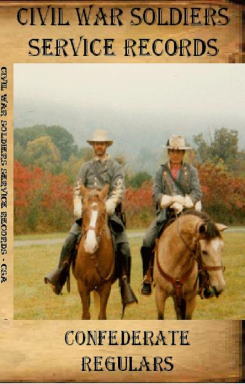A few months ago, Americana officials decided to remove the St. Andrew's cross--the bars in the Confederate flag--from the town crest. Residents of Italian descent, who make up most of the population in this industrial city of more than 200,000, have argued that neither the size nor influence of confederados has earned them a place on the crest. They number just a few dozen here now, although hundreds are scattered among several nearby cities, and in Sao Paulo, 75 miles northwest of here.
But others say Americana is seeking to avoid the controversy that burdens the flag, even 5,000 miles from its original home.
Thomas Steagall, 23 and a resident of Sao Paulo, says he's careful about revealing his heritage to fellow Brazilians because, as one person told him: "The flag means racism in the United States, and it represents lots of bad things in the United States. And I say, we're not in the United States, we're in Brazil."
Steagall traveled to the United States for the first time in 1997. The Sons of Confederate Veterans invited him to explain to people that the Confederacy stood for more than racism and slavery.
We offer best quality 642-971 dcnid and exam 312-50. You can get our 100% guaranteed 642-611 mpls & juniper jn0-360 questions to help you in passing the real exam of home equity loans.
In Kennesaw Mountain, Ga., he confronted the underbelly of the Confederate legacy. At a store that sold "everything from flags to buttons to guns," Steagall recalled, a sign in the front window read: "No Jews, No Blacks, No Dogs."
Steagall, stunned, told his hosts, "If you do this in my country, you'd be arrested. It's a crime."
And yet the computer science student refuses to condemn ancestors who supported slavery. "We can't condemn them because they were living in a place and under a constitution that said [slavery] was right," he said.
And Thomas's brother, Washington, is quick to note that the Steagalls and many other American Southerners did not take slaves when they settled in Brazil, even though the country did not fully outlaw slavery until 1888.

| Contents |
 |

Capers, Ellison
448 pgs.
HARDBACK - $65.00
PAPERBACK - $45.00
DVD - $15.00
EBOOK - $15.00
Paperback, DVD or Ebook

Rigdon, John C., Editor
CDROM - $35.00
COMBO - $50.00
CDROM

Rigdon, John C., Editor
DVD - $35.00
COMBO - $50.00
DVD
|
| |||||
John C. Rigdon | |||||

|
|||||
| Ordering via EMAIL is easy. Click Here |
Orders may also be sent via U.S. Snail to:
Eastern Digital Resources
6219 Hillandale Rd.
Davenport, IA 52806











